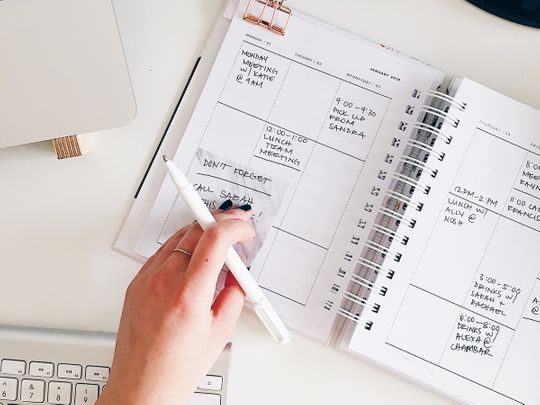
Are you terrible at planning? Blame your brain.
Click start to play today’s Spell It, where you can find ways to ‘plan’ out your day.
According to a July 2017 report in the US-based business news website Harvard Business Review (HBR), people with a natural dominance in the back-left part of the brain are most content making linear plans and sticking to them. But those with a dominance in a different region of their brain can find planning much harder. In such cases, they have to use 100 times more energy to go into planning mode, than someone to whom it comes naturally.
So, you’re either born to be a planner or you’re not.
But this doesn’t mean we can’t hone our planning skills, and actively build neuro-connections in our brain to become better planners. Here’s how you can go about it, according to HBR:
1. Set expectations
Go into the project with realistic expectations. Knowing that it’s going to be difficult to learn how to plan will help you become more willing to get up and dust yourself off when you stumble. Knowing that facing challenges are part of the process helps build a more resilient mindset.
2. It’s not all-or-nothing
Often, people feel like their efforts have been wasted if they don’t follow their plan to the tee, or if they can’t stick to their plan every day. Instead, think of it as a learning process, where every improvement counts. This way, even if you deviate from your objective, you’ll be more likely to get back on track.
3. Find systems that work for you
Don’t go into an established process if it doesn’t work for you. Those who have a front-right brain dominance, for example, tend to progress better with visuals, so they may be more successful drawing on whiteboards, and using sticky notes. Alternatively, those whose front-left brain is more dominant are excellent with spreadsheets, so they would be more successful using Excel to track their progress numerically.
4. Borrow other people’s ideas
It’s all about trial and error, and you never know whose organisational system may hit a chord with you. Get suggestions from colleagues and friends, and test it out for yourself, instead of trying to develop your own system from scratch – it can save you a lot of time.
5. Don’t give up
When you’re deep in the process and getting frustrated at things not working out, give yourself a time-out, and step back to recharge. But always come back to it when you’re refocused and ready. Don’t hesitate to adjust your plan when new issues come up, so that you’re not tied down to an unreasonably rigid structure.
Are you a natural planner? Play today’s Spell It and tell us at games@gulfnews.com.








